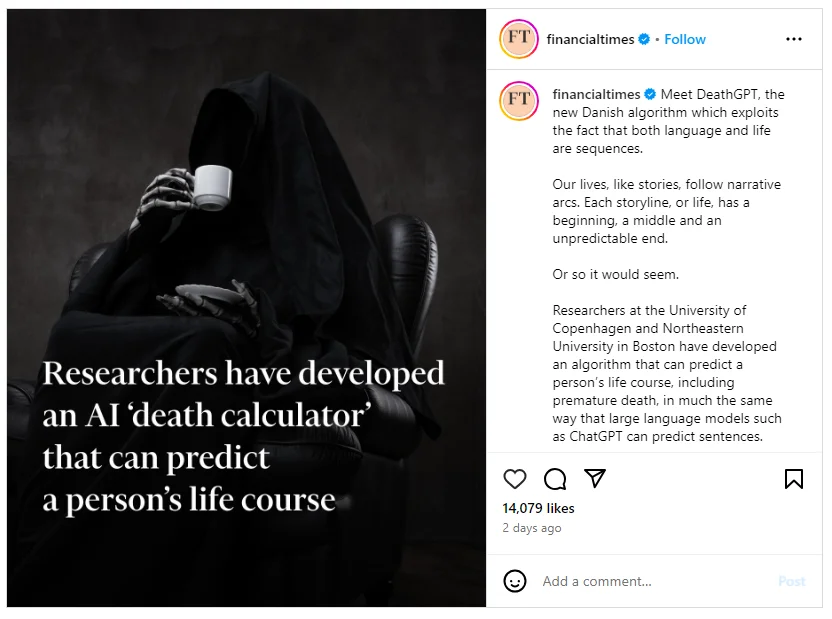In a remarkable development, scientists have introduced ‘DeathGPT,‘ a unique calculator that can predict life outcomes based on individual stories. This groundbreaking tool, nicknamed by the Financial Times, uses narrative building, much like stories unfold, to foresee a person’s life course, including the potential for premature death.
Researchers, led by Sune Lehmann from the Technical University of Denmark, tapped into Denmark’s registry data, covering everything from education and salary to job details, working hours, housing, and doctor visits. This wealth of everyday information became the foundation for an algorithm that can forecast life events, outperforming traditional models like actuarial tables used in the insurance industry.
ALSO READ: Hyundai Introduces a Delivery Robot for which Stairs are no obstacle
Similar to ChatGPT’s language prediction, the ‘DeathGPT’ is causing a stir by demonstrating the potential to understand and predict complex human lives through text. Lehmann, confident in the algorithm’s capabilities, commented, “The similarity between text and lives is deep and multi-faceted. It makes sense to me that our algorithm can predict the next step in human lives.”

This novel approach to predicting life outcomes has global implications, sparking discussions about ethics and its impact on industries like insurance. While the idea of a death calculator may seem daunting, supporters argue that it empowers individuals to make informed decisions about their lives and well-being.
ALSO READ: Volkswagen Unveils Groundbreaking AI Chatbot Integration for In-Car Conversations at CES 2024
The ‘DeathGPT’ isn’t just a tool; it signifies a new era in personalized forecasting, challenging existing norms. As society grapples with the concept of algorithms predicting the future, questions arise about its ethical considerations and potential effects.
In the midst of these conversations, it’s evident that ‘DeathGPT’ is reshaping how we understand the intersection of technology, data, and the human experience. Keep an eye out for more updates on this revolutionary tool and its impact on our understanding of life’s unpredictable journey.









